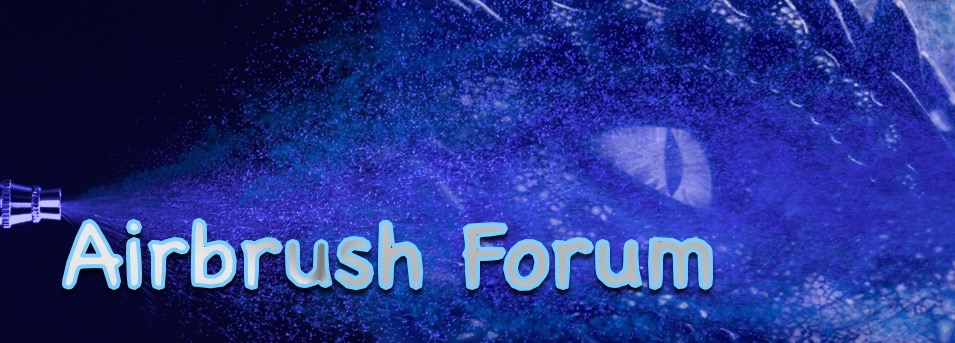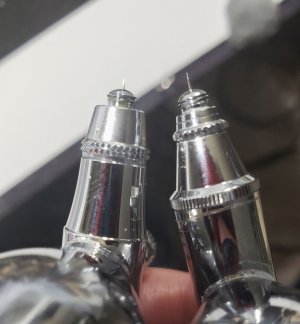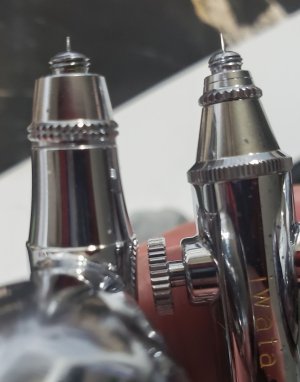MikeFrazer
Young Tutorling
Hi,
I'm looking for data (even approximate) on droplet sizes produced by a typical high performance airbrush like an Iwata Custom Micron. Obviously this would depend on nozzle/needle type & diameter, material viscosity and pressure. Does such data exist, eg for spraying water or even for particular inks or paints? I'm asking because I'd like to run an experiment to compare the performance of different droplet diameters on producing an even coating. None of the airbrush or nozzle manufacturers seem to refer to droplet size in their data sheets, even for standard performance. Any hints or pointers gratefully received!
Mike
I'm looking for data (even approximate) on droplet sizes produced by a typical high performance airbrush like an Iwata Custom Micron. Obviously this would depend on nozzle/needle type & diameter, material viscosity and pressure. Does such data exist, eg for spraying water or even for particular inks or paints? I'm asking because I'd like to run an experiment to compare the performance of different droplet diameters on producing an even coating. None of the airbrush or nozzle manufacturers seem to refer to droplet size in their data sheets, even for standard performance. Any hints or pointers gratefully received!
Mike



